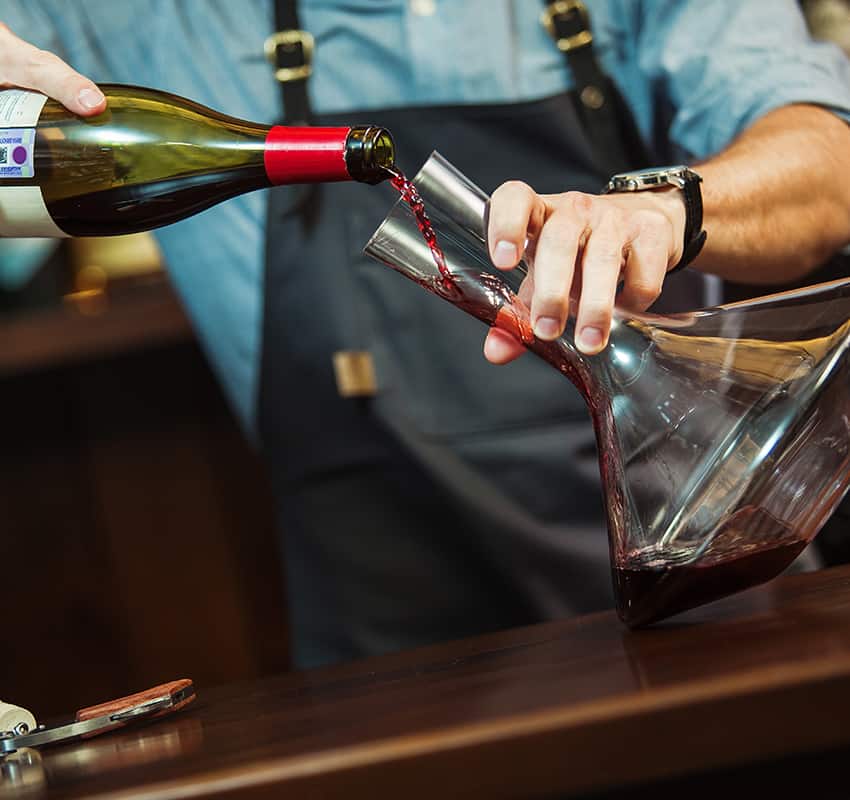What are Tied House Laws?
These laws are a little complex, so we’ll break them down into their basic components.
In the United States, the term “tied house” refers to any retail business that is indebted in some way to a specific alcohol manufacturer. This concept could be seen in pre-Prohibition America in which massive alcohol manufacturers would give retail businesses cheap loans, draft systems, and payments for preferable treatment from that retailer. In some cases, one manufacturer would own every single bar or restaurant in a town, effectively saturating the market with only their alcohol products.
Because of this, there was essentially no competition or choice for consumers, so retailers would oversell alcoholic products. When Prohibition was repealed in the 30s, each state placed tied-house laws in some form to prevent the occurrence of such oversaturation. These laws are still in place today.
So what does this have to do with advertisers? If you’re marketing in the alcohol industry, tied-house laws are something you’ll need to be able to work with.
How Are Advertisers Affected By Tied House Laws?
Smaller advertisers may not have even heard of tied-house laws. Regardless, they affect all alcohol advertisers and marketers.
Let’s look at an example. In 2014, the California Department of Alcoholic Beverage Control (a.k.a. The ABC) launched into a legal battle with a California winery for violating the state’s tied house laws. According to the ABC, the winery did so by posting an advertisement on Twitter that “encouraged” consumers to attend an event hosted by a large retailer. Because this specific retailer had a California alcohol beverage retailer license, the ABC accused the winery of providing free advertising. Under tied-house laws, a supplier cannot provide advertising to a retailer.
Under tied-house laws, distillers, wineries, brewers, and any other alcoholic beverage supply cannot provide undue influence over retail businesses. These laws are necessary to encourage diversity and competition in the alcoholic beverage sector. They’re also necessary for preventing over-consumption that could cause potential harm to consumers. In some states, tied-house laws will even prevent suppliers from giving anything of value to retailers.
So does this mean that supplies, retailers, and the advertisers who help them market their products are unable to advertise at all? Not exactly. There are certain measures that advertisers will need to take to ensure they are following the right protocol.
Federal tied-house laws dictate that it is unlawful for alcohol manufacturers to induce retailers to purchase their products exclusively. Inducements can involve giving, lending, selling, or renting anything of value to the retailer business. This includes free advertising. In order to comply with tied-house laws on a federal level, advertisers cannot mention retailers in their ad campaigns. One should also not use marketing materials that suggest that a specific retailer exclusively sells a manufacturer’s product or is benefiting from free advertising.
This is fairly easy. Suppliers can simply advertise their products without mentioning retailers and have done so for many years.
Things get a little more complicated when we look at state tied-house laws. Each state has different laws, so it’s important to look at the states that you will be advertising or selling product in before launching an ad campaign.
However, digital marketers need to comply with virtually all tied-house laws out there. While most are simplistic and mirror federal laws, some states have complex exemptions or stricter laws in place. As a general rule of thumb, advertisers should adhere to federal tied-house laws.
It’s important to remember that federal and state governments consider social media pages, not just display ads, as advertising platforms. That means that even if your supplier is going to be providing product to an event hosted by a retailer, you can’t really promote the event in a way that makes it seem as if your supplier’s product has privilege over others. The internet has made complying with marketing laws pretty messy!
Things are definitely changing, though. In October, a California bill was signed into law that allows wineries to use social media to promote events hosted by retailers that are featuring their wines. Just remember one major rule – don’t post a social media ad implying that you are supporting a specific retailer. It’s pretty simple.











